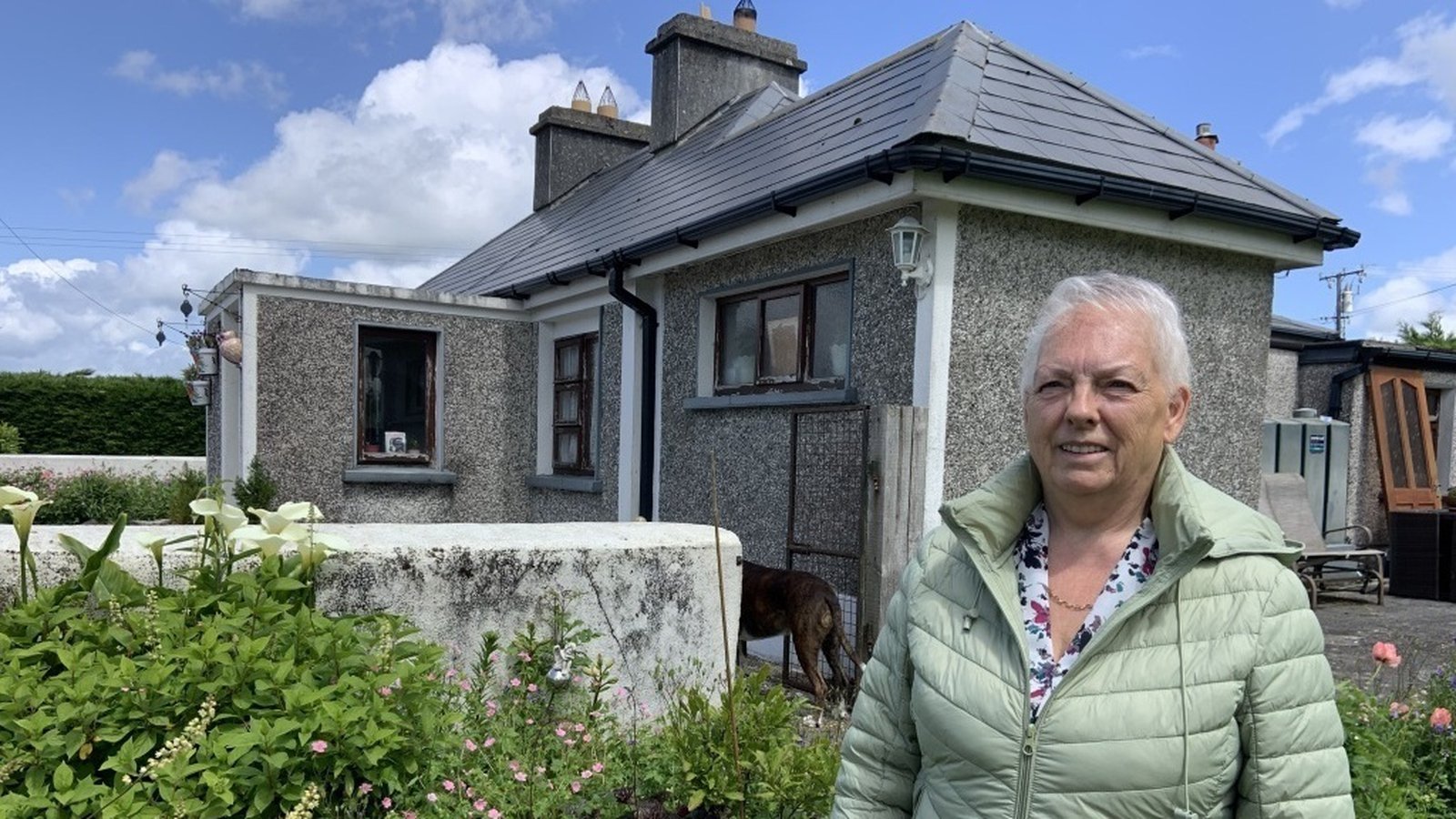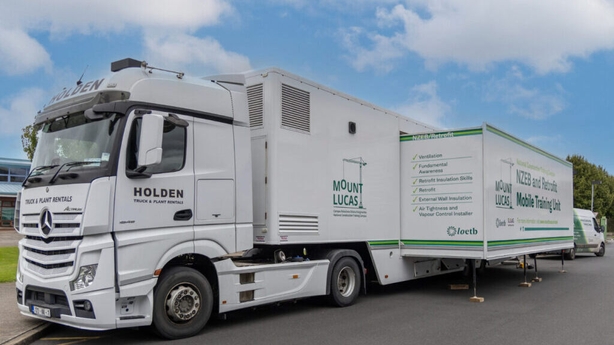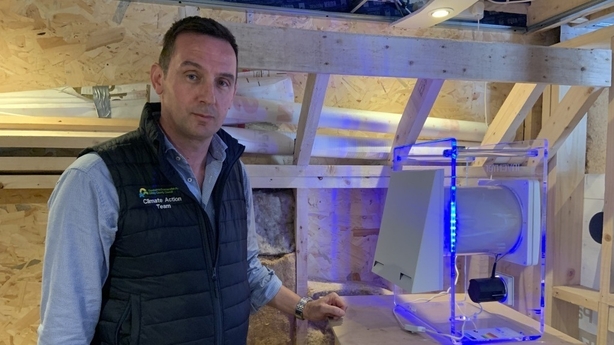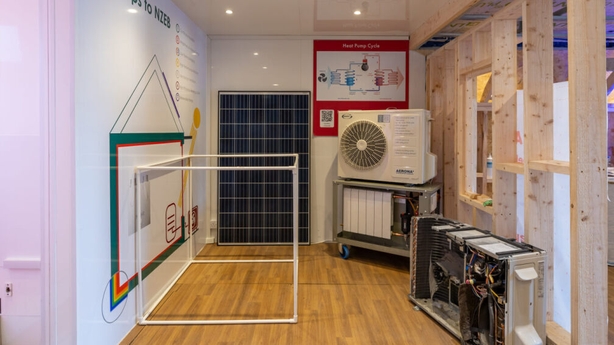Bussiness
Cost still a barrier to retrofitting homes for over 60s

A little more than a quarter of adults are likely to carry out a home energy upgrade in the next 12 months, a new survey has found.
According to the research, carried out earlier this year by the Sustainable Energy Authority of Ireland, 27% of people said there was a likelihood, with the lowest numbers in agreement amongst older people.
Climate change is expected to impact on older generations more severely than younger people.
Therefore, to build a climate resilient future, environmental movements, activists and policy makers need to consider the needs of older people.
It is estimated that 80% of people over the age of 60 own their homes in Ireland, but there are concerns there is not enough engagement with this demographic in terms of environmental impacts and additional supports when it comes to retrofitting and energy saving.
The over 60s are really a powerful group to engage, according to Jacinta Barrins, former UN official and founder and CEO of 60+ Climate Drive.
“They are willing, they are concerned, but bring them along with the right language, with the right encouragement and facilitation. Once it involves small groups, small conversations, let’s hear their voices and respond and support them,” Ms Barrins said.
On retiring from the UN, a niche emerged for her to support her own age group in reducing their carbon footprints and focus on behavioural and climate sciences to facilitate changing household consumption habits, including housing.
The aim of these workshops and talks is to explain what causes climate change and intergenerational responsibility.
Today she is hosting an Age Friendly Climate Conversation for people over 60 as part of the Offaly Energy and Retrofit Roadshow in Tullamore.
Ms Barrins wants to raise awareness in four main areas for households and individuals; transport, housing, food and waste.
When it comes to housing, she believes cost is one of the main barriers, and for those who can afford it she would like to see more of a connection with ‘why’ they are doing it.
She said: “Those who don’t have the money find you have to pay up front to get a grant. Some would obviously prefer that they would get the money up front.
“Those who have the money, I’m seeing that they’re not hesitating. But motivation often is the benefits such as it’s warmer, there’s a reduced cost and reduced bills.
“They’re all fantastic reasons. But it’d be lovely to think that the reason I’m doing this is that I might reduce three quarters of a tonne, and use the word tonne, of carbon by putting in the heat pump and managing it properly.”

For homeowner Linda Dowling, from Lacka on the Tipperary-Offaly border, plans to upgrade her home are on hold.
Following an accident, coupled with the Covid-19 pandemic, she ended up retiring early without some of the savings she had anticipated.
“With the cost of everything going up, and everything. I don’t think I’d have the wherewithal to actually do the work needed to retrofit the house to the standard that’s necessary,” Ms Dowling said.
The house needs improved floors, insulation and windows. There was no insulation in the bathroom roof when she bought the house, so she put it in last Christmas.
However, Ms Dowling believes a deep retrofit would be very expensive.
“That’s the main barrier really,” she said.
“If it’s a family home and you’ve lived in for a long time, you might feel it’s more worth it. I’m sure from the comfort factor, it’s definitely worth it.
“But if you’re looking at payback, maybe not so much.”

The biggest dilemma she is facing now is the cost and the upheaval of getting work done and moving out temporarily.
Coming from a family who always recycled and repurposed, she believes retrofitting would be “a good thing” for climate change.
Ms Dowling said: “If I could do what I should be able to do with this house, if I had all the money to do it I would be able to move away from fossil fuels.
“At the moment that’s not an option for me, because I can’t afford to get the work done to give that standard, that maybe you could use a heat pump or whatever might be recommended, to make this house have less of an impact on the environment.”
For now, she feels she has choices, but they are not easy ones.
“I either put all my money into this or maybe I’ll buy a campervan and go traveling and don’t worry about any of those things, or some other options.
“I just have to see what happens. It’s difficult,” she said.

The Offaly Energy and Retrofit Roadshow has been taking place in Tullamore this week to raise awareness about new technologies, retrofitting, energy saving and grants available.
Offaly County Council in collaboration with the Laois and Offaly Education and Training Board (LOETB) Mount Lucas and SEAI, brought the Mount Lucas retrofitting rig to the Bridge Shopping Centre car park in Tullamore for members of the public to attend training sessions and get advice.
“We’re really trying to hammer home the message that we need to reduce our emissions, individually and collectively,” said John McNally, Climate Action Co-Ordinator with Offaly County Council.
“Any work that we can do to reduce our own carbon footprint is really important. It might be a small step, but I think every little action does help,” he said.
He said he does not believe there is any specific demographic that is more proactive in coming forward looking for funding for retrofitting than any other.
“It’s across the board, we try to collaborate with all demographics from school kids through to homeowners, businesses, the age friendly group, so there’s this good interest from all demographics,” he said.
Mr McNally wants to engage with all ages to help meet national targets of reducing emissions, adding: “Their one action in retrofitting their house will contribute to that national target, so it’s a significant step.”
For many older people concerned about the cost, he advised starting small.

He said: “They could look at insulation, insulating their attic, insulating their walls, or some new windows or doors.
“There’s specific grants, they’re available for individual measures that don’t necessarily need to do the full suite of measures all at once.”
Molly Buckley, a member of the Older Person’s Network and Age Friendly Alliance, believes older people are conscientious when it comes to the environment.
She said she thinks they could have more input, and that there should be more information available for the demographic.
“The LOETB are providing a great opportunity this week with the mobile rig and also out in Mount Lucas where they have all the stands to show people what’s involved and take the fear out of it, if there is a fear,” Ms Buckley said.
Financial barriers and not knowing where to get grants are some of the main issues, according to Ms Buckley.
“I think for any of us, even to ask our own young people they’d be able to tell us what to do but financial concerns and fear of the house being turned upside down are barriers,” she said.
From her own experience of changing from an oil heating system to wood pellets, she said there was not that much disruption.
“There was a little bit of disruption but it was well worth it, and we would be very conscious of doing our bit for the environment,” she said.










